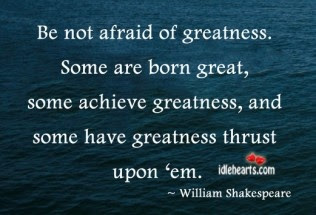To clarify exactly what that means in 2024, I consulted the Income Eligibility Guidelines for the Child Nutrition Programs, posted by the Federal Register, a division of the National Archives. From July 1, 2024, to June 30, 2025, for a family of four, the annual poverty guideline is $31,200. So, a family of four with a household income of not more than $57,720 would be eligible for reduced-price lunch. A family of four with a household income of not more than $40,560 would qualify for free lunch. Reduced-price lunch is calculated at 185% of the poverty rate, and free lunch is calculated at 130% of the poverty rate.
In 1996, that same government website indicated that the poverty guideline was $15,600. That family of four would be eligible for reduced-price lunch if they made no more than $28,860. To receive a free lunch in 1996, a family of four must make less than $20,280. Those numbers are as staggering today as they were in 1996. Still, these were my kiddos for the four years I taught there.
I'm proud of the time I spent there. The dear friends I made. The fact that I met My Wife, who arrived three years after me and started teaching next door to me in that very building.
Thanks to social media's healthy and fulfilling aspect, I'm still in touch with many of my former students from almost thirty years ago. It's incredible to see what they're doing with their lives. Without this contact, they would be frozen in the same classroom seats where I last saw them in June 2000.
Recently, one of them reached out to me and asked if I remembered a poem they presented to the entire school community. In my second or third year there, we started a program called Special Speakers. The idea was to allow our students to speak publicly. The expectation was that each student would memorize a poem, essay, or piece of writing meaningful to them and recite it at our daily morning assembly in front of the entire school.
While I didn't remember their poem specifically, I did remember the one I presented. Our students requested that the teachers meet the same expectations in the second year of this program. I chose what is associated most with Nelson Mandela's Inaugural address, but what actually came from Marianne Williamson's book, A Return to Love: Reflections on the Principles of "A Course in Miracles."
Our deepest fear is not that we are inadequate. Our deepest fear is that we are powerful beyond measure. It is our light, not our darkness that most frightens us. We ask ourselves, 'Who am I to be brilliant, gorgeous, talented, fabulous?' Actually, who are you not to be? Your playing small does not serve the world. There is nothing enlightened about shrinking so that other people won't feel insecure. We are all meant to shine, as children do... And as we let our own light shine, we unconsciously give other people permission to do the same. As we are liberated from our own fear, our presence automatically liberates others.
Our deepest fear is not that we are inadequate. Our deepest fear is that we are powerful beyond measure. It is our light, not our darkness that most frightens us. We ask ourselves, 'Who am I to be brilliant, gorgeous, talented, fabulous?' Actually, who are you not to be? Your playing small does not serve the world. There is nothing enlightened about shrinking so that other people won't feel insecure. We are all meant to shine, as children do... And as we let our own light shine, we unconsciously give other people permission to do the same. As we are liberated from our own fear, our presence automatically liberates others.
There is wisdom in this quote. It's not about personal greatness, it's about ensuring that we can all shine together. To be child-like, not childish. To let our greatness inspire others to be as great, whatever level that is.
I saw greatness for the five years I served at that school in Chicago. At a place that was all but forgotten by everyone except those of us who taught there and went there. For those families, there was greatness in that building despite their surroundings. Despite the crippling poverty. Despite the unspeakable violence that surrounded the public housing project nearby.
The East Greenwich Public Schools Vision of a Graduate speaks to the expectation of greatness, not inadequacy. The Strategic Plan in EGPS speaks to greatness, not inadequacy. The Master Plan points us toward greatness in the future of educational spaces, not inadequacy.
Per Ms. Williamson, the presence of greatness "automatically liberates others." Ensuring that our classrooms are safe, welcoming, and inclusive demonstrates that we expect greatness but not perfection. Greatness means mistakes will be made along the way so that we can all learn to our potential.
Let us run towards our own greatness, and embrace it so others will do the same.

No comments:
Post a Comment